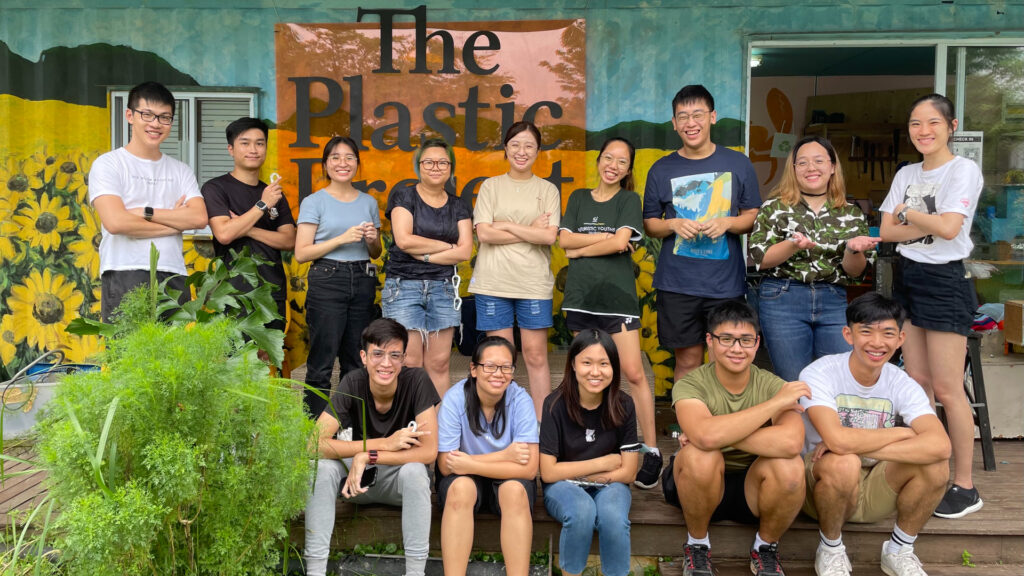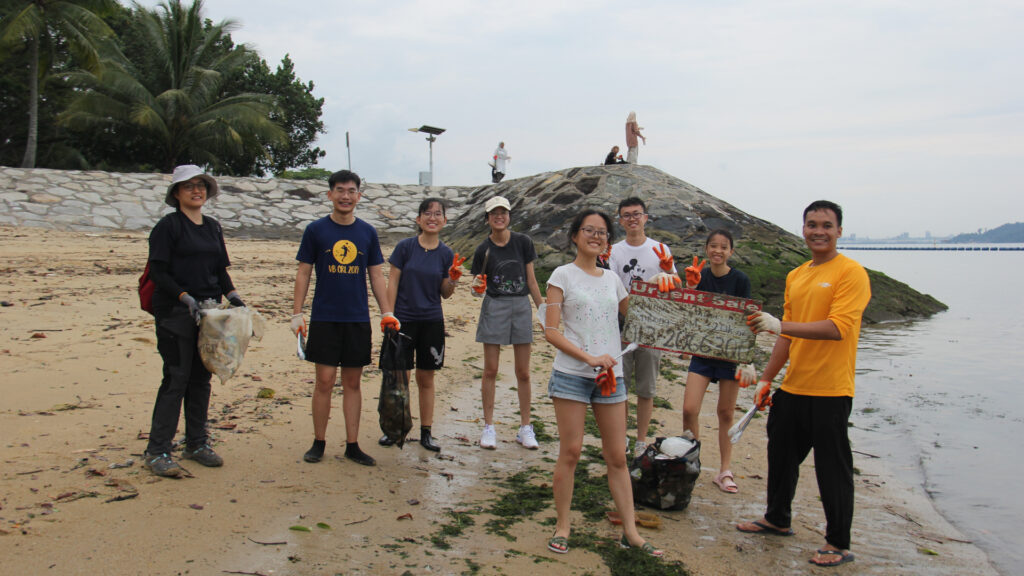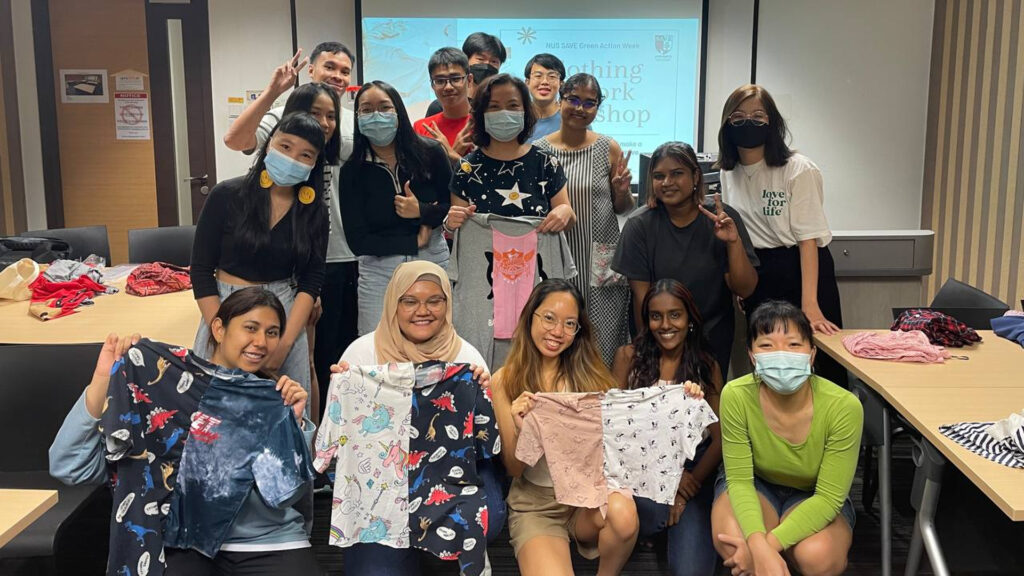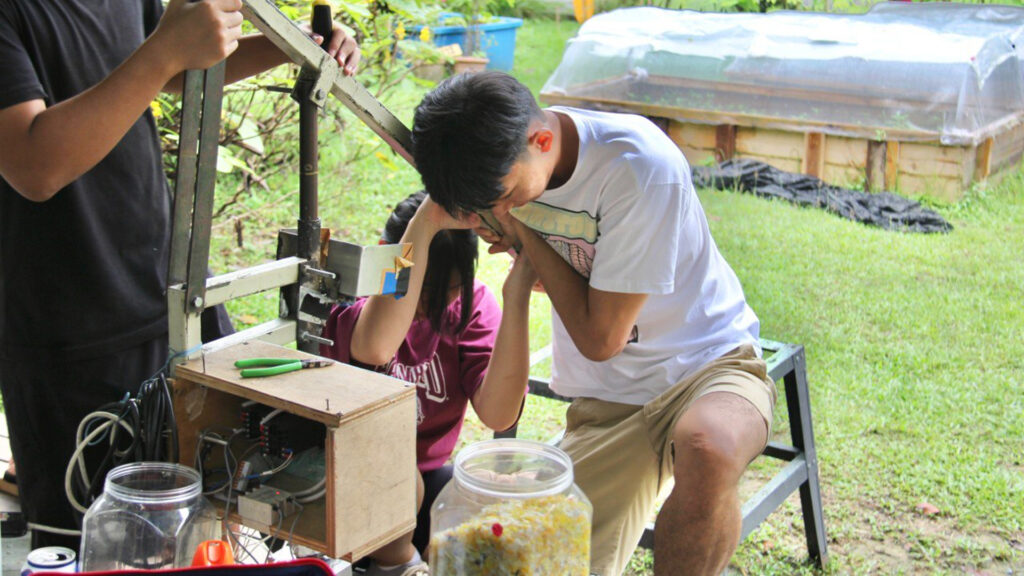Student-led Green Action Week: Taking Small Steps Towards a More Sustainable Lifestyle
February 7, 2023
IN BRIEF | 15 min read
- During NUS SAVE’s inaugural Green Action Week, over 140 NUS students discovered different fun and fulfilling ways to incorporate climate-conscious behaviours into their day-to-day lives.

From cleaning beaches and redistributing unwanted food, to repurposing old clothes and plastic waste, over 140 NUS students learnt that there are many different ways to do their part for the environment, during NUS SAVE’s (Students’ Association for Visions of the Earth) inaugural Green Action Week held in December 2022. NUS SAVE, which recently celebrated its 30th anniversary, is an environmental student group that seeks to work with fellow students, the University administration, and other NUS stakeholders to inspire a more sustainable culture on campus.
Third-year FASS student Vania Xu (NUS Economics and NUS Psychology) who is the current Co-President of NUS SAVE (Students' Association for Visions of the Earth), shared that the diverse line-up of activities for Green Action Week – from volunteering sessions and workshops to guided tours – were planned with the aim of exposing the NUS community to the myriad of ways that individuals can incorporate sustainable practices into their everyday lives.
“With our very first Green Action Week, we wanted to show people that there isn’t only one way to lead a more sustainable lifestyle. You can engage in activities that suit your own personal habits and interests, and that also happen to be good for the environment,” Vania said.
“It was heartening to meet so many like-minded individuals who are passionate about sustainability during the course of the week,” she added.
Volunteering for the Good of the Environment
Thirty-seven student volunteers led by NUS SAVE’s Biodiversity team set out on a clean-up activity at Pasir Ris beach –– and ended up collecting a staggering 270 kg worth of trash ranging from plastic food packaging, drink bottles, and even huge signboards. For many of the volunteers, it was a sobering reminder of the impact that marine litter can have on local wildlife and biodiversity.

Another 25 student volunteers also helped to redirect and redistribute food that would otherwise have been wasted or thrown away, during an afternoon at MoNo Foods’ warehouse in Chinatown. MoNo Foods is a company that takes unsold food items from suppliers and resells them at lower prices to prevent food wastage. These unsold food items are still edible and safe to consume, but need to be taken off shelves and discarded by suppliers for various reasons – for example, damages to product packaging during transportation or changes in product branding labels.
Chee Koi Jun, a first-year student in the Faculty of Science, was one of the volunteers who helped to sort through the large amount of food donations received by MoNo Foods from various suppliers. He shared: “It was an eye-opening experience because I could actually see the impact of my efforts – in just one afternoon, we sorted through six pallets of food donations that would otherwise have been headed for the incinerator.”
Breathing New Life into Old Clothes and Plastic Waste
Apart from encouraging students to volunteer their time to support sustainable causes, NUS SAVE also sought to promote the ethos of sustainable consumption during Green Action Week. The group organised several workshops on upcycling and repurposing old and used items, so as to help their peers in the NUS community pick up functional tips on reducing waste and living more sustainably.

For example, at a ‘Half-and-Half’ workshop conducted by Alt.Native – a company founded by NUS Business School (Class of 2021) alumna Amanda Lim – 15 participants learnt how to refashion two old clothing items into a unique half-and-half shirt. Alt.Native’s reputation for reworking preloved clothing items into new bespoke pieces impressed participants like first-year Business School student Ramesh Babu Poornima, who shared that she signed up for the workshop because she wanted to find a creative way to reduce her fast fashion footprint while still maintaining a fashionable and trendy wardrobe.
“It was also useful to learn new stitching techniques – they will come in handy if I want to mend or alter clothes on my own in the future,” Poornima added.
To further promote the idea of sustainable fashion, NUS SAVE’s Green Wardrobes team also organised a tour of six different thrift stores in Lucky Plaza. For many on the tour, it was their first foray into “thrift shopping” – that is, buying second-hand items (usually clothes) at discounted prices – and a welcome way to kickstart their sustainable fashion journeys.

At another workshop conducted by The Plastic Project, 14 NUS participants got a taste of how the volunteer-run environmental organisation tackles plastic pollution by repurposing plastic waste into new products, such as earrings, Christmas ornaments, keychains and coasters – and even churned out some 40 brand new carabiners. All of the organisation’s signature products are made of recycled plastics of Type 2 (HDPE) and 5 (PP), collected from community donations and beach clean-ups.
Volunteer Chelsea Ooi, who has helped out at The Plastic Project for over half a year, said that more experienced volunteers usually target to make 40 to 50 carabiners per hour. The first-year Business School student added that she was drawn to The Plastic Project because she shares its vision for creating a circular economy and promoting mindful consumption.
“I also like that they came up with a creative solution to reduce plastic waste, by upcycling it into new products,” commented Chelsea.
This story by NUS SAVE first appeared on NUSnews on 6 February 2023.

